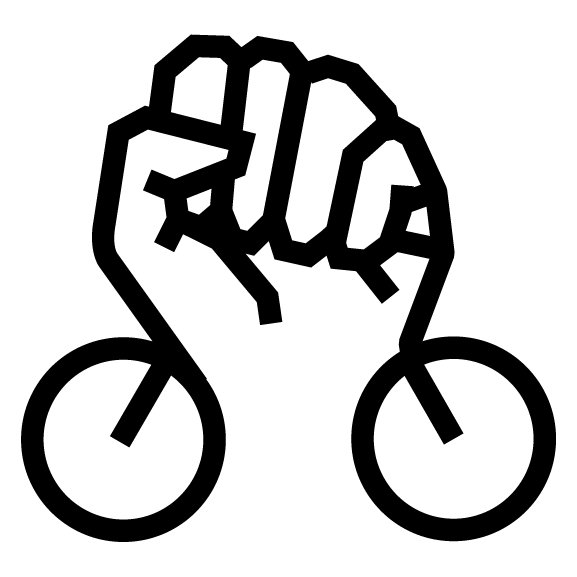In this blog, I have often mentioned Bicycle Habitat. It's a fine shop (well, now they're a series of shops) and I have a relationship with them that goes back decades, to the time I was working for American Youth Hostels and Habitat was around the corner. They've remained a "go-to" source for me, and their chief mechanic and partner, Hal Ruzal, turned me on to Mercians.
I also patronize a shop in my neighborhood: Tony's, right in the heart of the still-Greek part of Astoria. Actually, I learned about them years ago, when I was an artist-in-residence at St. Mary's Hospital for Children and a chain snapped on my way home.
Recently, I bought a couple of things from them. I got to talking with the owner, who is friendly and helpful. Although he sells current-model Cannondales and Treks, he has a trove of older parts. He probably wasn't joking when he said some of them have been there since the shop opened in the early '70's.
I spotted one such piece of equipment in his showcase: a pair of Shimano bar-end shifters from the '70's. "I haven't seen those in a while," I remarked.
"I can show you something else you probably haven't seen in a long time."
That was an understatement, to say the least.
I think that I've seen one other set of Simplex bar-end shifters in my life. Certainly, I haven't seen them in four decades, or close to it.
Most cyclists who rode bar-end shifters during the '70's and '80's chose SunTour's. I even saw a few otherwise all-Campagnolo bikes with "Bar Cons," and with good reason: Sun Tour's ratcheting mechanism made them much smoother and more reliable than other companies' bar-end shifters. To this day, they are probably still the best-selling bar end shifter of all time: Many cyclists, even some who aren't "retro-grouches," seek them out on eBay and other places.
If my own observations are indicative of wider trends, I'd say that just about everybody who didn't use SunTour's bar end shifters in those days opted for Shimano which, while not as pleasant to use as SunTour's, were still better than the ones made by other companies--including Campagnolo.
Simplex and Huret bar ends (which are often believed to have been made in the same factory) relied on friction to keep the lever in place when it wasn't being shifted. So did Campagnolo's bar ends, as well as most other shift levers made for derailleurs. Friction is fine on downtube shifters, but makes for balkier shifting with the extra cable length required by bar-end shifters.

Simplex, however, seemed to believe it had a solution to the problem with its demultiplicateur. It clamps to the down tube, near the bottom bracket--in the same spot a cable guide would have been placed. While most guides for rear derailleur cables were (and are) "tunnels" through which one cable runs continuously, the demultiplicateur was a bell crank-like device to which two lengths of cable--one forward to the shift levers, the other rearward to the derailleur--were attached to pivot points with differing radii. This increased the mechanical advantage, which made for easier and smoother (if not necessarily more accurate) shifts. A few constructeurs and custom builders brazed them onto their frames, most often tandems, which required cables longer than some of the rides people take.
Based on my limited experience with the demultiplicateur, I'd say it did what it was intended to do, and did it well. It made shifting those old Simplex and Huret derailleurs (as well as Campy derailleurs that didn't have "Record" or "Gran Sport" in their names) tolerable, even with bar-end shifters. But shops usually tried to dissuade customers from them: For one thing, they were never easy to come by. But, more important (at least from their point of view), they were more complicated than other cable-routing systems, which meant that mechanics hated installing them and customers balked at the extra cost (for the extra time needed) to install them.
I was tempted to make an offer on those shifters and their demultipilicateur, which were still in the packaging from nearly half a century ago. But I encouraged Tony to list them, unless he wanted to keep them: Someone out there is restoring a French bike and would want, if not the shifters, then at least the demultiplicateur. Or, I'm sure, some collector would want them.
I asked Tony whether he had any Simplex downtube shifters. (Of course, I'm thinking of the retrofriction levers.) He doesn't think he has any, or any other vintage downtube levers, he said. But those Simplex bar-ends were certainly a find! Even if you're not interested in vintage bike equipment, people like Tony are fun and interesting to talk with just because they've been involved with bikes for so long. Oh, and I shared my reminisces about Greece with him. He assured me that my itinerary was a good one for a first visit!













